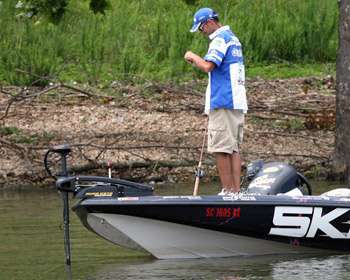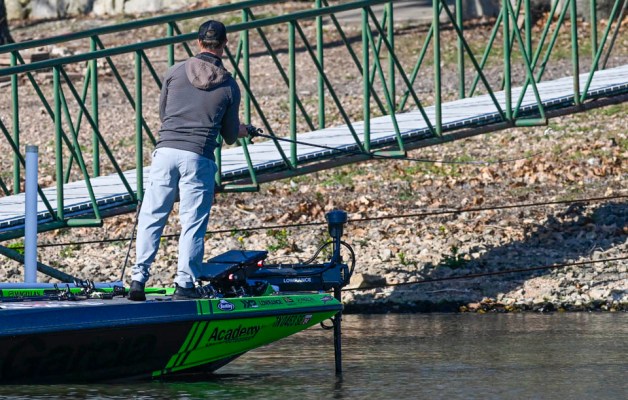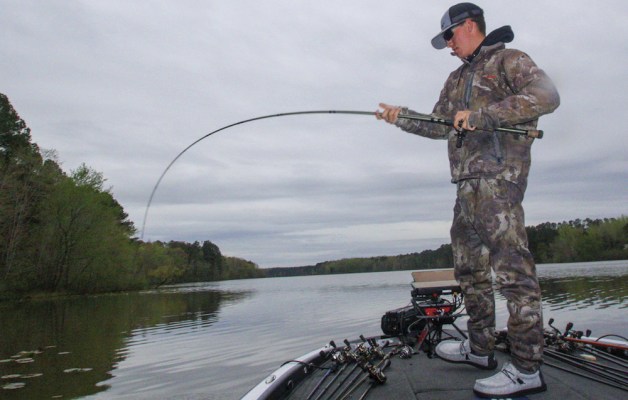
As our waterways get increasingly pressured and the bass within them get correspondingly more wary, it has become imperative to appeal to all five of their senses. But making a perfect presentation takes time, and with limited hours in the day, sometimes it's imperative to figure out whether it's worth it to sacrifice some of that perfection in order to get in more casts.
Second-year Elite Series pro Marty Robinson believes that adding scent to his lures can pay big dividends. He also believes there are times when you'll benefit more just from keeping your bait wet than from constantly applying one of the many commercial fish attractants available today. "I think it's important to keep human scent or any scent that's not natural off the bait, more than it is to keep a scent on the bait at all times," Robinson explains.
He's most concerned with keeping off odors and substances that will have a negative impact of the likelihood that a bass will strike: "One of the most important things is that if you fuel up early in the morning or put oil in the boat, make sure you don't get any oil or gas on your hands." Even when washing such substances off of his hands, he is careful not to introduce a new strike deterrent to the mix. He never washes up with anything more than water and a very mild soap.
Robinson estimates that he uses a fish attractant about a third of the time that he uses jigs or soft plastics but he said that there's no need to use them on hard baits, where you are likely trying to trigger a reaction strike. But there are several specific situations in which he thinks a shad, garlic or crawfish scent can make a difference in the number and quality of the size of the fish you put in the boat.
The first is when weather throws a wrench in what had previously been good conditions.
"A lot of times what keys me in to whether I need to use scent is when I go out and you have post-frontal conditions, cold front and bluebird skies," he says. "It seems like you're getting a lot of short bites. A lot of times if you add some scent attractant you'll hang those fish instead of missing them." The other factor that plays a role in his decision whether to rely on scented lures is the species of bass he is pursuing.
For largemouth, it can make a difference under the difficult conditions described above, but when smallmouth are in the picture, he's much more likely to liberally coat his lures with a scent even under good weather conditions. "Smallmouth seem to have a lot more taste buds than largemouth," Robinson says. "They get really keyed in on the Berkley scented baits and they seem to bite those a lot better."
When he believes scent to be a factor, he'll use the lures that have scent built in and occasionally spray some more on them from an applicator bottle. But he doesn't waste precious minutes trying to "match the hatch" of the particular odor that's likely to fire the fish up the most.
"I don't really think the particular scent matters," he explains. "As long as when they hit the bait they taste something natural, whether it's crawfish or shad, they'll hold onto it."
(Provided by Z3 Media)





